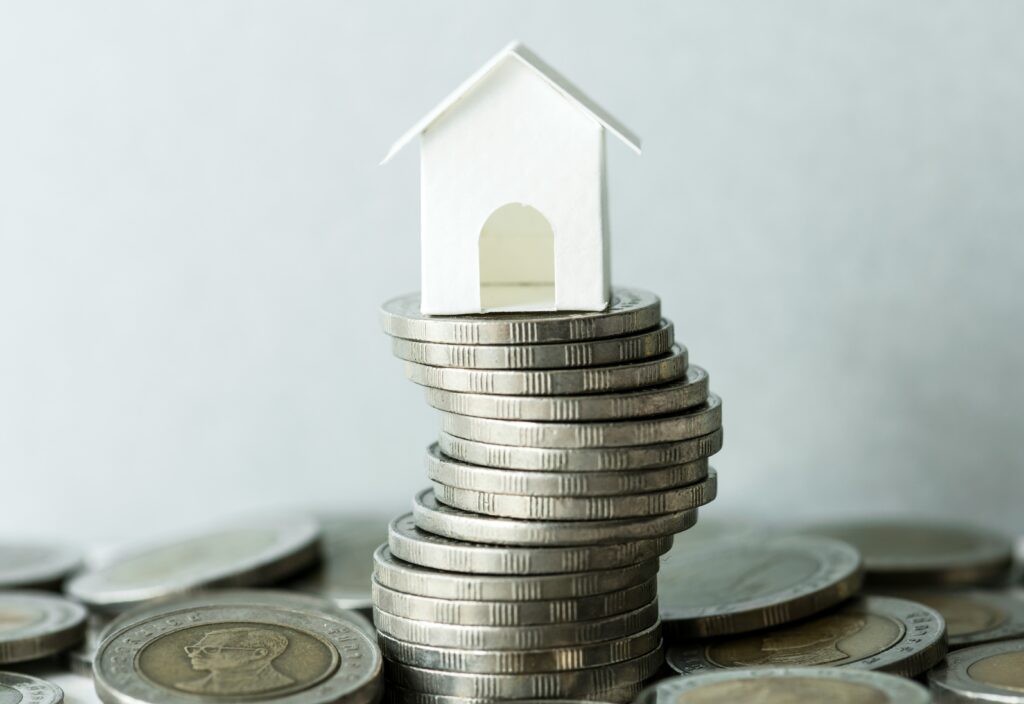Selling a House at Auction
Your complete guide to selling a property at auction
Why sell your property at auction?
Selling your house at auction can be a quicker and more competitive alternative to using an estate agent. With rising interest in auctions it’s clear more sellers are turning to this route for speed, certainty, and the potential to attract serious buyers.
But is it the right choice for you? In this guide, we’ll break down how property auctions work, the pros and cons, the costs involved, and a faster alternative that might suit your situation even better.

How do you sell a house at auction?
Valuation
Preparation
The auction catalogue
Setting a reserve price
Open house
Auction day
Exchange of contracts
Legal process
Completion and handover
Does selling your house at auction guarantee a sale?
While auctions offer a fast-paced and potentially lucrative way to sell your property, it’s important to understand that there’s no guaranteed sale.
The success of an auction depends on a number of things, including property condition, market demand and the reserve price. If the highest bid doesn’t meet your reserve price, your property remains unsold.
Therefore, while auctions can be exciting, it’s essential to approach them with realistic expectations. It’s worth being aware that if your property doesn’t sell in auction, it might be more difficult to sell it on the open market afterward, as potential buyers may have seen your property advertised at the lower guide price.
It’s so important to weigh the potential benefits of a quick sale against the risks of not achieving your desired price. So, let’s zoom out and look at the good and the not-so-good about this selling option.
What are the pros and cons of selling a house by auction?
Like any selling method, auctions come with both advantages and disadvantages. Let’s explore both sides of the coin:
The pros of selling at auction
Faster than a traditional sale: Auctions offer a rapid sales process, often completing within weeks. This is particularly attractive if you’ve got a tight deadline or urgent financial needs — or simply if you want to sell your house quickly.
Competition can drive up the price: The auction environment can spark bidding wars, potentially driving up the sale price beyond your expectations.
Less chance of sale falling through: Once the hammer falls and the reserve price is met, the sale is typically binding, eliminating the uncertainty that comes with traditional sales.
The cons of selling at auction
Uncertainty of a sale: There’s no guarantee your property will sell if the reserve price isn’t met.
The fees can add up: Auction houses charge commission fees and you’ll need to pay for a solicitor and surveys, which can reduce your final proceeds.
Preparation pains: Your property needs to be in excellent condition to attract buyers, so this means time, effort and expense on your part.
Emotional impact: The competitive nature of auctions can be stressful for some sellers.
Potential for a lower sale price: While competition can ramp up the prices, there’s also a risk of selling below market value if bidding falls short of expectations. It all depends on the day. It can even depend on the weather on the day, as poor weather can mean some buyers just might not bother to show up.
These advantages and disadvantages mean that deciding whether to sell your house at auction needs extremely careful consideration of your unique circumstances.
What are the costs of selling a propety at auction?
Not all selling options are equal when it comes to the impact on your pocket. So, what costs are involved in selling at auction? Let’s run through a few key expenses:
Entry / marketing fees
Auction houses sometimes charge a fee upfront to list your property. This will cover advertising and marketing costs to catch the eye of potential buyers — no buyer, no sale.
Auctioneer’s commission
This is usually the most significant cost involved in selling at auction. It’s calculated as a percentage of the final sale price, and it varies between auction houses. Be sure to ask potential auction houses about how they structure their commission so you can budget accordingly.
Legal and admin fees
Selling a property involves legal processes — there’s no way around that — and with auctions you’re liable for paying your own solicitor. On top of that, the auction house may charge administrative fees for services they provide — think property pack preparation and handling the sales journey.
Other potential costs
It’s worth keeping some money to hand for any additional costs that might come up, though these will depend on your situation. These can include property repairs or improvements to make it more appealing to potential buyers, professional photography or floor plans and potential storage costs if you need to vacate your property before the auction.
All in all, the costs usually work out around the same as selling via the traditional route — but naturally the exact costs depend on your unique situation, as well as the specific agency/auctioneer/legal services you choose.
Is selling a house at auction right for you?
Deciding whether to sell your house at auction requires careful consideration of your unique circumstances. Several key factors will influence your decision.
You can ask yourself the following questions to help you decide:
What are the market conditions, both locally and nationally?
A buoyant property market can benefit from the competitive atmosphere of an auction. If you believe your property can bring in plenty of interest, an auction might be a good choice. On the flip side, if the market is a bit stagnant, a different route could get you better results.
What are your financial goals?
What are your expectations for the sale price? How does this compare to what an auction could get? Auctions can generate competitive bidding, but there’s no guarantee you’ll achieve the price you hoped for. We talked about costs earlier in this guide — remember to bear these in mind when assessing how much you’ll actually have in your bank at the end of the process.
How’s your risk tolerance?
Selling at auction inevitably involves a degree of risk. Not everyone is okay with that when it comes down to it. Are you comfortable with the possibility that your property might not sell if the reserve price isn’t met? Can you cope with any emotional toll from the competitive nature of the auction process?
Have you considered all your options?
Selling your house at auction is just one of several options. Traditional estate agents, online platforms and direct sales to cash buyers for houses offer alternative approaches. It all comes down to the best path for you, and the only way of identifying that is by fully exploring your choices and getting some more information.
Why sell property at auction instead of selling traditionally?
Selling your house isn’t something you do every day (thankfully). It’s a massive decision, and choosing the right method will make life so much easier. Auctions offer a dynamic and potentially lucrative approach, but they aren’t the only possibility – and they aren’t right for everyone.
Therefore, carefully consider your individual circumstances, including your timescale, financial goals and risk tolerance. Revisit the pros and cons to help make a more informed choice too — and be honest about who you are and what you want.
Above all else, remember that selling your house doesn’t have to be stressful. If a fast, reliable sale is your priority, consider exploring a cash offer from Sell House Fast. We offer a competitive cash offer and a guaranteed sale as quickly as you require, removing the uncertainty of the open market.
Getting a free cash offer can be a valuable first step, and a potential alternative to the traditional selling process. Just get in touch and we’ll work with you to understand your specific needs and explain how we can help.
Selling a House at Auction FAQS
We’ve pulled together some of the most frequently asked questions about selling a house via auction so you can make an informed decision as to whether it’s the best route to sale for you.
How much does it cost to sell a house at auction?
How quickly can you sell a house at auction?
What are the differences between a modern and traditional house auction?
Modern auction: Auction takes place online and runs for up to 30 days. Bids can be made at any time. Contracts are not exchanged at the end of the auction, but a non-refundable reservation fee is paid. Buyers have 56 days to complete their purchase.
Traditional auction: Auction takes place in person on a set day and time but can take place online. 10% deposit paid and contracts exchanged upon the hammer falling. It must be completed within 28 days.
Will I get market value if selling a house via auction?
Is a sale guaranteed at auction?
How do you get your house listed at auction?
Can any property be sold at auction?
Can a buyer get a mortgage for houses sold at auction?
Will I have viewings if I try and sell my house at auction?
Is there a faster alternative to selling a house at an auction?








